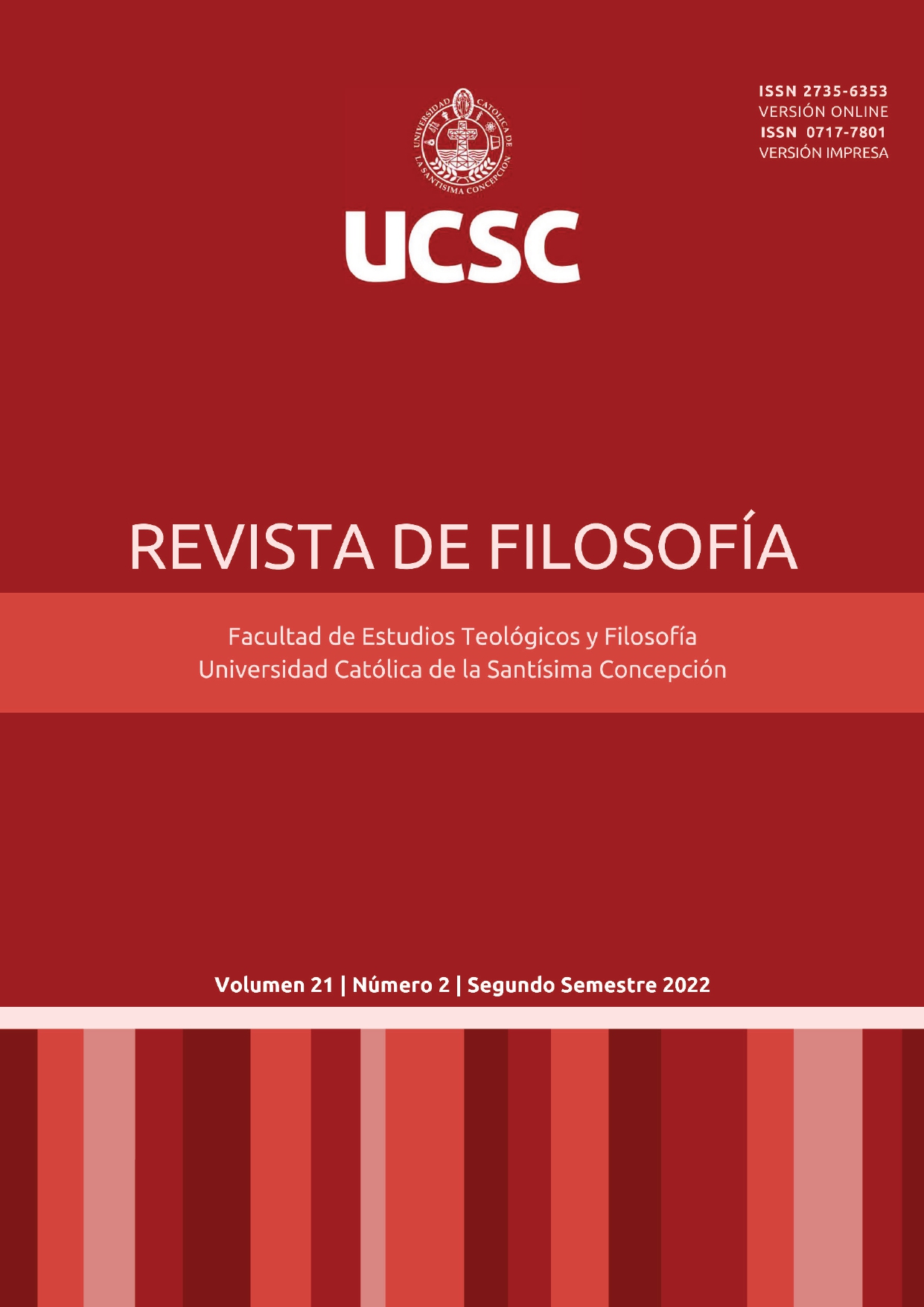Empty speeches for stagnant ears: towards an hermeneutics of action
Main Article Content
Abstract
The current state of discourse, as a specific modality of human communication, has lost its effective connection with reality in certain political, religious, and cultural contexts, that is to say, it has been stripped of existential referents that support the ideality of discourse. Consequently, the semantic emptiness of human discourse has perpetuated the existential stagnation of human beings, becoming an obstacle to personal and social transformation processes. Therefore, the need for the ideality of human discourse to become real and effective in the person addressed through the hermeneutics of action becomes paramount, so that the great dreams of humanity are not only fixed in writing, but are also able to effectively impact the lives of the individuals that make up the communicative social fabric of the current world.
Downloads
Metrics
Article Details

This work is licensed under a Creative Commons Attribution-NonCommercial 4.0 International License.
The Revista de Filosofía UCSC is an open access journal and does not charge for publication. In addition, it regulates its Copyright and access policy according to the Creative Commons Attribution-NonCommercial 4.0 International Public License (CC BY-NC 4.0), therefore sharing (reproducing and distributing the material in any medium or format) and adaptation (modifying, transforming, and creating from the material) is allowed as long as proper credit is given and the citation is included with the corresponding data. Moreover, it is not allowed to use the material for commercial purposes.
References
Arendt, H. (1997). ¿Qué es la política? Barcelona: Paidós.
Arendt, H. (2006). Los orígenes del totalitarismo. Madrid: Alianza Editorial.
Austin, J. (1991). Cómo hacer cosas con palabras. Barcelona: Paidós.
Baena, G. (2011). Fenomenología de la revelación. Navarra: Verbo Divino.
Baudrillard, J. (1993). Cultura y simulacro. Barcelona: Kairos.
Baudrillard, J. (2002). Contraseñas. Barcelona: Anagrama.
Baudrillard, J. (2009a). ¿Por qué no todo ha desaparecido ya? Medellín: Universidad de Antioquia.
Baudrillard, J. (2009b). La sociedad de consumo, sus mitos y sus estructuras. Madrid: Siglo XXI.
Cassirer, E. (1967). Antropología filosófica: introducción a una filosofía de la cultura. México: FCE.
Castells, M. (2001). La galaxia internet. Madrid: Areté.
Castells, M. (2006). La era de la información, sociedad red. México: Siglo XXI.
Castells, M. (2009). Comunicación y poder. Madrid: Alianza Editorial.
Cohen, G., & Fougeyrollas, P. (1980). La influencia del cine y de la televisión. México: FCE.
De Hipona, A., (2013). Las confesiones. Madrid: BAC.
Descartes, R. (2006). Discurso del método. México: Porrúa.
Foucault, M. (2014). La hermenéutica del sujeto. Buenos Aires: FCE.
Francisco. (2015). Carta Encíclica Laudato Si´, sobre el cuidado de la casa común. Bogotá: San Pablo.
Frankl, V. (2003). Ante el vacío existencial, hacia una humanización de la psicoterapia. Barcelona: Herder.
Frankl, V. (2010). Psicoanálisis y existencialismo, de la psicoterapia a la logoterapia. México: FCE.
Gadamer, H. (1998). Verdad y método II. Salamanca: Sígueme.
Habermas, J. (1993). El discurso filosófico de la modernidad. Madrid: Taurus.
Heidegger, M. (2003). Ser y tiempo. Madrid: Trotta.
Heller, A. (1998). Sociología de la vida cotidiana. Barcelona: Península.
Hobbes, T. (2007). Leviatán. Buenos Aires: Losada.
Horkheimer, M., & Adorno, T. (1998). Dialéctica de la ilustración, fragmentos filosóficos. Madrid: Trotta.
Kant, I. (2004). Filosofía de la historia, qué es la ilustración. La Plata: Caronte Filosofía.
Kasper, W. (1979). Jesús el Cristo. Salamanca: Sígueme.
Leibniz, G. (2012). Ensayos de Teodicea. Granada: Comares.
Lenti, A. (2007). Don Bosco, historia y carisma I. Madrid: CCS.
Levy, Pierre. (1999) ¿Qué es lo virtual? Barcelona: Paidós.
Lipovetsky, G. (2010). La era del vacío, ensayos sobre el individualismo contemporáneo.
Barcelona: Anagrama
Lyotard, J. (1987). La condición postmoderna, informe sobre el saber. Madrid: Cátedra.
Parménides. (1981). Fragmentos. Buenos Aires: Aguilar.
Platón. (2011). Diálogos. Madrid: Gredos.
Rahner, K. (2008) La gracia como libertad. Barcelona: Herder.
Ricoeur, P. (1981). El discurso de la acción. Madrid: Cátedra.
Ricoeur, P. (1982) Finitud y culpabilidad. Madrid: Taurus.
Ricoeur, P. (2002). Del texto a la acción, ensayos de hermenéutica II. México: FCE.
Ricoeur, P. (2004) Tiempo y narración. México: Siglo XII.
Ricoeur, P. (2008) Fe y filosofía: problemas del lenguaje religioso. Buenos Aires:Libros Prometeo.
Ricoeur, P. (2015) El conflicto de las interpretaciones. Buenos Aires: FCE.
Schopenhauer, A. (2003). El arte de ser feliz explicado en cincuenta reglas para la vida. Barcelona: Herder




